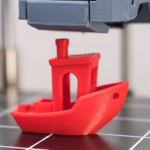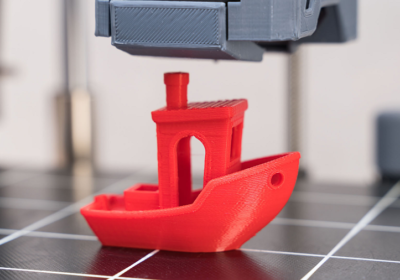
Here’s How ArchiverFS Works and Why It’s A Game Changer
The software gives you a really good way to migrate older files that might be holding onto older versions of documents. It doesn’t just allow for migration, but it also allows for the storage of file versions and folders with different revisions so you can find what you are looking for in one place.
ArchiverFS from Mltek is a new file system that was created as a way to help manage files and folders. It was designed to be faster and more efficient than traditional file systems, which can make it a great option for the migration and storage of older files.
How does ArchiverFS work?
ArchiverFS is a new file system designed to improve the performance and licencing information of Linux systems. The file system uses a novel block-level deduplication algorithm to reduce the amount of storage required by individual files. This allows ArchiverFS to be used on systems with limited storage space, improving system performance while maintaining data integrity.
You can now access the files on the filesystem using the standard Linux file system commands.
What makes ArchiverFS different from other file migration tools?
ArchiverFS is different from other file migration tools for a few key reasons. First, it uses a data-driven approach to migrating files. This means that the tool analyzes the contents of each file and determines which parts of the file should be migrated. Second, ArchiverFS is designed to move large files without causing any loss of information or data integrity. Finally, ArchiverFS can migrate files between different platforms and operating systems without any modifications or extra steps.
All of these features make ArchiverFS a powerful tool for administrators who need to migrate large files quickly and painlessly.
How does ArchiverFS work?
ArchiverFS works by analyzing the contents of each file and determining which parts of the file should be migrated. The tool then uses this information to create a migration script for the file. Once the script is created, ArchiverFS can automatically migrate the file to the new location without any user intervention.
Why is it a game-changer?
ArchiverFS is a new open-source file system that is designed to change the way we store and manage data. It is different than existing file systems in a number of important ways, which makes it a game changer.
One of the biggest advantages ArchiverFS has over traditional file systems is its ability to store large files without running into space limitations. This is important because it allows businesses to keep more data permanently archived without having to worry about running out of storage space.
Another major advantage ArchiverFS has over other file systems is its ability to optimize files for faster access. This means that you can access your files quickly even if they are located on large storage devices.
Overall, ArchiverFS offers many advantages over traditional file systems that make it a powerful tool for business owners and data administrators.
Different uses of ArchiverFS
ArchiverFS is a new file system that can do a lot of different things. Here are some of its most popular uses:
- It can be used as a backup solution for data stores like MongoDB and Cassandra.
- It can be used to archive files and folders.
- It can be used to store large files or folders without taking up a lot of space.
- It can be used to compress files and folders.
Where can you find more information on ArchiverFS?
ArchiverFS is a new file system that promises to be faster, more reliable, and easier to use than traditional file systems. It’s designed specifically for large files and data streams, and it can handle very large files without any performance issues.
To learn more about ArchiverFS, you can check out the project website or read the documentation. You can also ask questions on the ArchiverFS mailing list, or join the discussion on Reddit.
What does the user need to do to use it?
ArchiverFS is a new file system developed by Google that is designed to be faster, more efficient, and easier to use than traditional file systems.
To use ArchiverFS on your Android device, you first need to install the app from the Google Play Store. Once installed, open the app and tap on the “Create File System” button. You will then be prompted to name your new file system and select which type of storage it will be stored on (internal or external). After naming your file system and selecting an appropriate storage device, tap on the “Create File System” button again.
Now that your new ArchiverFS file system has been created, you can begin using it by opening the app and tapping on the “File Systems” button. From here, you can view all of your existing files and folders as well as create new ones. If you want to access a particular file or folder from outside of your Android device, simply long-press on it and select “Open With…” from the pop-up menu.
ArchiverFS is said to offer improved performance over traditional file systems thanks to its optimized layout and data handling. Additionally, its user-friendly design makes it easy for even novice users to manage their files.
Frequently Asked Questions
What is ArchiverFS?
ArchiverFS is a new file system designed to make data loss and data corruption much less likely. It’s built on top of the RocksDB database, which is designed to be highly reliable.
How does ArchiverFS work?
ArchiverFS uses a layered architecture. The first layer is the RocksDB database. This layer stores all of the data. The second layer is the filesystem. This layer contains the actual files. The third layer is the indexing layer. This layer helps keep track of where each file is located in the filesystem. Finally, there is the application interface layer. This layer provides access to the files and the rocksdb database from applications such as computers, servers, and storage systems.
Why is ArchiverFS a game-changer?
There are a few reasons why ArchiverFS could be a game changer. First, it’s built on top of a highly reliable database system – this means that data loss and corruption will be much less likely. Second, it uses a layered architecture – this means that if one part of the system fails, it won’t affect everything else. Finally, it’s designed to be easy to use – so even non-technical people can use it to store their data safely.”

















